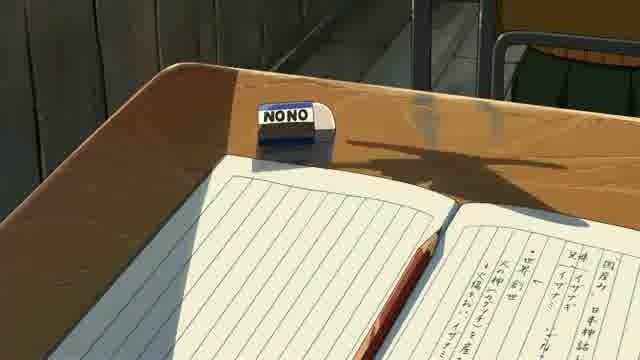Director:
Makoto ShinkaiGuión:
Makoto ShinkaiCámara:
Makoto ShinkaiMúsica:
Atsushi ShirakawaReparto:
Fumiko Orikasa, Kenji Hamada, Hisako Kanemoto, Junko Takeuchi, Kanae Itō, Rina Hidaka, Sumi Shimamoto, Kazuhiko Inoue, Takeshi Maeda, Miyu Irino, Risa Mizuno (más)Streaming (1)
Sinopsis(1)
La joven Asuna no puede olvidar una misteriosa melodía que ha escuchado a través de su radio, que utiliza como diodo un cristal que le dejó su padre como recuerdo. Poco después, conoce a Shun, un misterioso joven que dice venir del reino subterráneo de Agartha. Pero justo cuando empieza a despertar algo entre ellos, el muchacho desaparece súbitamente. Con el deseo de volver a verle, los acontecimientos empujan a Asuna a un viaje a Agartha repleto de aventuras y peligros. La acompañan Morisaki, un profesor dispuesto a todo para reunirse de nuevo con su difunta esposa, y Shin, el hermano de Shun. Los tres emprenden el viaje a través de una tierra legendaria que les enseñará a aceptar la pérdida en un mundo lleno de belleza y crueldad a partes iguales. (Selecta Visión)
(más)Videos (1)
Reseñas (3)
Shinkai’s film lays out for viewers an admirably complex fantasy world with intricate mythology. Unfortunately, however, all of that is counterproductive here. The endless stating of the names of various parts and elements of that world, the permanent establishment of the fantasy realm’s relationship to reality and the construction of a rigid mythology paradoxically conceal the true essence of the film, which presents, or rather should present, a narrative about overcoming the excruciating pain of losing a loved one. The fantastical, which should fulfil a symbolic role for the characters’ inner feelings, ceases to serve its purpose here with its obstinate concreteness and overwrought nature, which leads to the necessity of expressing emotions expressed in straightforward monologues. The film is equally unbalanced in the constituent motifs, or rather attractions, which it uses to please its target audience of teenagers. Gratuitous gore is combined with gaudy cuteness and picturesqueness, and the central motif of the difficult and painful search for one’s own path through life after a devastating loss is simultaneously expanded into complex ideas and portrayed with simplicity and naïveté. As an antithesis to Shinkai’s film, Shinya Tsukamoto’s brilliant Vital and the anime A Letter to Momo also expressively deal with coping with the loss of a loved one, but in both of those films the subject and metaphor are perfectly in balance.
()
None of Makoto Shinkai's trademarks are lacking (rain, a train, longing) and yet this trip is different from every else he has created, before or after. From the adventure of a band of misfits, a fantastic and unconventional fantasy quickly emerges, and although other reviewers criticize how it rips off none other than Hayao Miyazaki, I welcome this deviation. The genre action is surprisingly exciting when all is said and done, and I had no idea what would happen in the next five minutes, less so at the very end. Long hours contemplating the conflicting twists and character development are a sure thing.
()
Even though the Japanese title doesn't say much, I still find it nicer than the internationally released "Children Who Chase Lost Voices from Deep Below," which translates to "children chasing lost voices from the depths." This English title is not an accurate translation; it could be written in Czech as "children chasing stars." This title itself is magical and refers to what awaits us. Another unique spectacle from Japanese production. If you think that American animated films are strong in terms of the story, start watching Japanese ones. Although they have a very classic drawing style, the story usually amazes you. It is incredibly epic, even though it focuses only on a few characters. It remains strongly emotional, but you never feel like someone is blackmailing you. More: http://www.filmovy-denik.cz/2013/03/hoshi-o-ou-kodomo-2011-70.html
()
Galería (69)
Foto © Media Factory



Anuncio